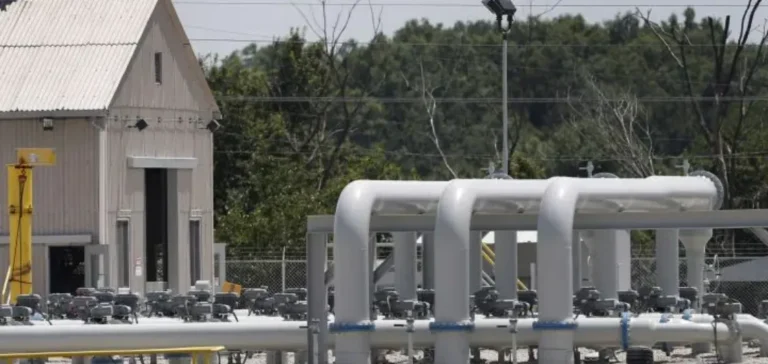Enbridge, a Canadian company specializing in energy infrastructure, is exploring the possibility of increasing the capacity of its pipelines designed to transport crude oil from Flanagan, Illinois, to the U.S. Gulf Coast. The goal is to better meet the growing demand for export logistics. This initiative particularly aims to improve supply to major Gulf terminals, where the volume of oil delivered from U.S. production areas is steadily increasing. Currently, limited pipeline capacity creates logistical constraints for market players.
Strategic Expansion toward Corpus Christi and Houston
Enbridge already maintains extensive infrastructure in the region, including the Houston Oil Terminal (EHOT) at Jones Creek, expected to begin operations by 2026. This terminal will have significant storage capacity capable of receiving and shipping approximately 930,000 barrels per day (b/d). The company also plans to invest around $700 million in constructing the Canyon Oil Pipeline System, capable of transporting 200,000 b/d of crude oil, and the Canyon Gathering System, a dedicated natural gas network with a capacity of 125 million cubic feet per day (MMcf/d). These facilities will primarily support the offshore development of the Kaskida oil field.
Additionally, Enbridge operates the Gray Oak Pipeline, connecting the Permian Basin to Corpus Christi, Texas. This pipeline, currently with a capacity of 980,000 b/d, will soon undergo an additional capacity increase of 120,000 b/d. This expansion aims to ease logistical constraints between major producing basins and export terminals located along the Gulf Coast. Enbridge’s initiative aligns with a broader dynamic aimed at optimizing U.S. domestic oil flows to international markets.
Anticipating Rising Exports
U.S. crude oil exports continue to grow, increasing pressure on existing transportation capacities. This trend generates increased demand for robust logistics services between producing regions, primarily located in the Midwest and Southwest U.S., and Gulf Coast export ports. In response, Enbridge is closely evaluating investments to facilitate crude oil flows to these strategic locations.
These developments could significantly impact price differentials between Permian Basin oil and international markets. The establishment of these new capacities may also influence commercial strategies among U.S. producers and exporters, opening new prospects for oil market participants. Enbridge has not yet confirmed the precise timeline or total cost of the proposed projects.






















